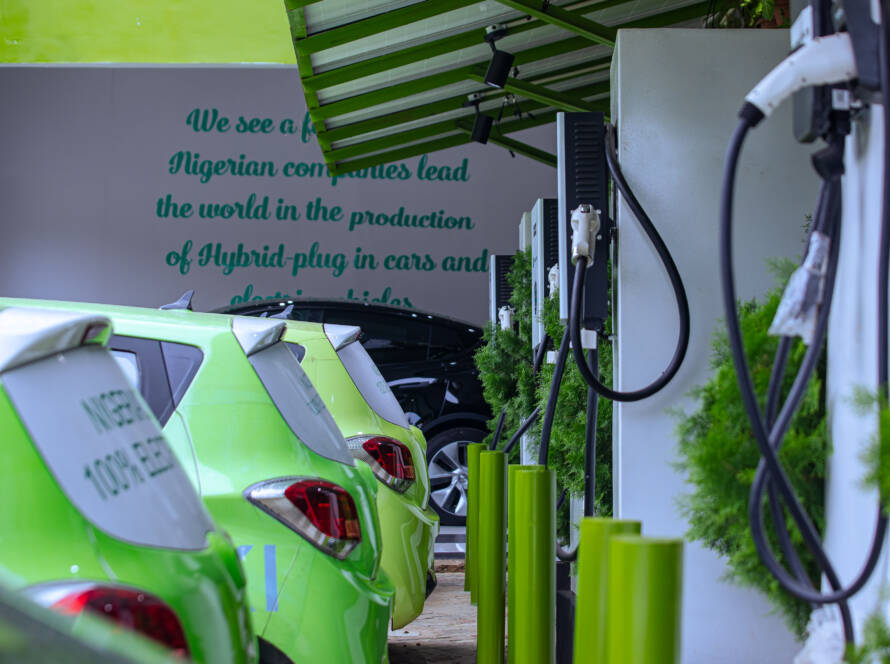Electric vehicles (EVs) are rapidly gaining traction worldwide, and Africa is no exception. However, as with any emerging technology, EVs face skepticism and criticism. In Nigeria and other African nations, several misconceptions and arguments have arisen against the adoption of EVs. It’s time to address these concerns head-on and debunk the myths surrounding EVs, showcasing why they are not only viable but essential for Africa’s future.
Argument 1: EVs Are Too Expensive for Africans
One of the most common arguments against EVs is their high upfront cost. Indeed, EVs tend to have higher sticker prices than traditional combustion vehicles. However, this view is short-sighted.
First, government incentives and subsidies can significantly reduce the purchase price of EVs. While such incentives may be more established in Western countries, African governments are beginning to recognize the benefits of promoting EVs. For instance, Rwanda has implemented tax incentives to encourage EV adoption. And the Nigerian government has also implemented an import-duty exemption on electric vehicles.
Second, the total cost of ownership for EVs is lower. EVs have fewer moving parts, which translates to less maintenance and fewer repairs. Additionally, electricity is generally cheaper than petrol or diesel, leading to substantial savings on fuel costs. As the market for EVs grows, economies of scale will drive prices down further, making EVs more accessible to a broader population.
Argument 2: Africa Lacks the Infrastructure for EVs
Another significant concern is the perceived lack of charging infrastructure. Critics argue that without an extensive network of charging stations, EVs are impractical. While it’s true that Africa’s charging infrastructure is still developing, this is a temporary hurdle.
Investments in charging infrastructure are ramping up across the continent. For example, Nigeria has seen a surge in public and private sector initiatives to install charging stations. Possible EVS, for example, is planning to deploy 10,000 charging stations across the nation in the next 5 years. Moreover, EVs can be charged at home, eliminating the need for frequent visits to charging stations for most daily commutes. With advancements in solar technology, off-grid solar charging solutions are also becoming viable, especially for rural areas.
Argument 3: Range Anxiety Is a Dealbreaker
Range anxiety, or the fear that an EV will run out of battery before reaching its destination, is another common argument. This concern is rapidly becoming outdated.
Modern EVs boast impressive ranges, often exceeding 400 kilometers on a single charge. This is more than sufficient for the average daily drive in most African cities. For longer trips, the growing network of fast chargers along major highways ensures that drivers can recharge quickly and conveniently. As battery technology continues to improve, EV ranges will only increase, further alleviating range anxiety.
Argument 4: EVs Are Not Environmentally Friendly
Some critics claim that EVs are not as green as they seem. They argue that the production of EV batteries and the electricity required to charge them can negate their environmental benefits. It is true that making electric vehicles require high upfront cost in carbon emissions, due to the mining of minerals for EV batteries.
However, the arguments overlook several critical points. After the initial cost in carbon emission during manufacturing, EVs remain relatively clean throughout their life span, whereas traditional ICE vehicles emit a continuous stream of climate pollution throughout their life span.
While it’s true that battery production has an environmental impact, EVs are still significantly cleaner over their lifetime compared to internal combustion engine vehicles. This is because EVs have zero tailpipe emissions, and as the grid becomes greener with more renewable energy sources, the overall carbon footprint of EVs will decrease. Moreover, initiatives in battery recycling and the development of more sustainable battery technologies are rapidly advancing.
Argument 5: EVs Are Unsuitable for Africa’s Climate
Another misconception is that EVs cannot handle Africa’s diverse and often harsh climates. From the sweltering heat of the Sahara to the humidity of the equatorial regions, Africa’s climate poses challenges for any vehicle.
However, EVs are designed to operate in various environmental conditions. Advances in battery cooling and heating systems ensure that EVs perform efficiently, regardless of the weather. In fact, EVs can be more reliable than traditional vehicles in extreme conditions because they have fewer parts that can overheat or freeze.
Argument 6: EVs Will Disrupt the Economy
Some fear that a shift to EVs will negatively impact the economy, particularly in countries like Nigeria that are major oil producers. While it’s true that reduced demand for oil could affect these economies, the transition to EVs presents significant economic opportunities.
The EV industry can create jobs in manufacturing, infrastructure development, and maintenance. Furthermore, reducing reliance on imported fuels can enhance energy security and reduce expenditure on fuel imports. Investing in renewable energy sources and EV infrastructure can stimulate economic growth and innovation.
The arguments against EVs often stem from a resistance to change and a reliance on the status quo. However, as we have seen, many of these concerns are either exaggerated or based on outdated information.
For Africa, embracing EVs is not just about keeping up with global trends; it’s about securing a sustainable and prosperous future. EVs offer a path to cleaner air, reduced dependence on fossil fuels, and economic growth through new industries and job creation. The transition may come with challenges, but the benefits far outweigh the drawbacks. It’s time to drive forward into an electrified future.


